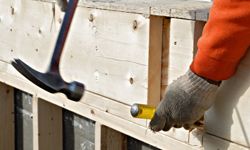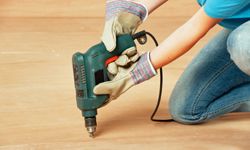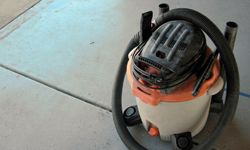Many 9-to-5-ers have become weekend home reno warriors, and no project is more popular now than making over their basements. Whether you want a playroom, a game room, an extra bedroom or a home theater, finishing out your basement is a great way to add square footage to your home and extra space to your family life. From sealing concrete and framing to hanging drywall, many daring DIYers are doing it all, and these are 10 tools they need to do it well. Just one piece of advice: Leave the plumbing and electrical to a professional.
Advertisement





